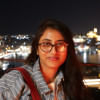
Saudia Afrin
Saudia Afrin is an environmentalist and a former journalist at The Daily Star.
Saudia Afrin is an environmentalist and a former journalist at The Daily Star.
When women hold families together through crises, manage budgets on shoestrings, and put others’ needs first, who protects them?
Shoppers are eagerly splurging on new outfits and thoughtful gifts for loved ones. As Eid-ul-Fitr—the most significant religious festival—draws near, sales of lifestyle products are surging, driven by heightened consumer demand.
The traditional production of clay-burned red bricks is a significant contributor to greenhouse gas (GHG) emissions in Bangladesh, leading to the annual loss of 1% of the country’s agricultural land.
Rajshahi, known by many names—The Clean City, The City of Mangoes, The City of Silk, and The City of Education—has a rich history as an administrative center.
A secure environment, well-maintained surroundings, and proximity to key locations are now essential considerations in real estate development.
Women in Bangladesh have made significant strides in education, employment, and leadership, yet full equality remains out of reach. Despite progress, challenges such as wage disparities, underrepresentation in decision-making, and gender-based violence persist.
As climate change accelerates, Bangladesh faces worsening threats from cyclones, floods, and rising sea levels, displacing millions and straining existing infrastructure.
The Daily Star (TDS): What is the current status of the initiatives aimed at identifying the unique needs of persons with disabilities?
When women hold families together through crises, manage budgets on shoestrings, and put others’ needs first, who protects them?
Shoppers are eagerly splurging on new outfits and thoughtful gifts for loved ones. As Eid-ul-Fitr—the most significant religious festival—draws near, sales of lifestyle products are surging, driven by heightened consumer demand.
A secure environment, well-maintained surroundings, and proximity to key locations are now essential considerations in real estate development.
Rajshahi, known by many names—The Clean City, The City of Mangoes, The City of Silk, and The City of Education—has a rich history as an administrative center.
The traditional production of clay-burned red bricks is a significant contributor to greenhouse gas (GHG) emissions in Bangladesh, leading to the annual loss of 1% of the country’s agricultural land.
Women in Bangladesh have made significant strides in education, employment, and leadership, yet full equality remains out of reach. Despite progress, challenges such as wage disparities, underrepresentation in decision-making, and gender-based violence persist.
As climate change accelerates, Bangladesh faces worsening threats from cyclones, floods, and rising sea levels, displacing millions and straining existing infrastructure.
TDS: How would you evaluate the current media scenario in Bangladesh?
The Daily Star (TDS): Why is labour sector reform the most urgent priority?
The Daily Star (TDS): How would you assess the current state of Bangladesh’s environment, and what are the most pressing challenges?